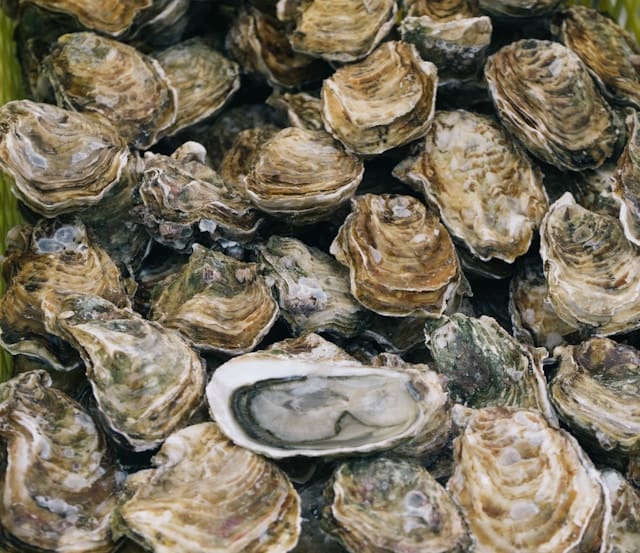
Calcarea carbonica
Latin name: Calcarea carbonica
Short name: Calc
Common name: Calcium carbonate | Oyster shell | Precipitated chalk | Lime of oyster shell | Carbonate of lime
Primary miasm: Psoric Secondary miasm(s): Sycotic, Tubercular
Kingdom: Minerals
Family: Animal minerals
- Symptomatology
- Remedy Information
- Differentiation & Application
This remedy is prepared from the middle layer of the oyster shell (inner calcium carbonate-rich layer), which is washed, triturated, and potentised according to homeopathic methods. Chemically, calcium carbonate (CaCO₃) is a widely found compound occurring in rocks (chalk, limestone, marble), and the shells of marine organisms.
Calcium carbonate is used extensively in the construction industry (cement, lime), as a calcium supplement, antacid, and in pharmaceutical excipients, paper production, and even toothpaste.
First proved by Samuel Hahnemann, and described in detail in Chronic Diseases (1828). It is one of the central polychrests of homeopathy, with wide-ranging action on physical, emotional, and constitutional levels.
Bones and joints; glands (especially lymphatic and mesenteric); skin; gastrointestinal tract; female reproductive organs; head and scalp; respiratory mucosa; metabolic processes.
Lying on painful side; warmth; dry weather; rest; being wrapped up warmly; constipation improves from stool passage; looseness of clothing.
Cold and damp; exertion (mental or physical); ascending stairs; exposure to cold air; bathing; pressure of clothing; milk; during full moon; getting feet wet.
- Silicea: Also slow to develop, chilly, but more shy, refined.
- Calcarea phosphorica: More growing pains and school-aged children.
- Sepia: Also fatigued and sluggish but more irritable and disconnected.
- Sulphur: More heat and offensive discharges.
- Baryta carb.: Greater mental deficiency and childishness.
- Complementary: Belladonna, Silicea, Lycopodium
- Antidotes: Camphor, Nitric acid
- Inimical: Bryonia
- Follows well: Nux vomica, Pulsatilla
- Precedes well: Sulphur, Calc. phos.
Calcarea carbonica typifies the solid, dependable, cautious type who becomes overwhelmed by demands and collapses into fatigue, anxiety, and physical stagnation. The body becomes heavy, slow, and cold; the mind becomes anxious, fearful, and controlling. Children needing this remedy are slow to develop, sweat profusely on the head, and crave eggs.
Useful for failure to thrive, slow teething, developmental delay, chronic fatigue, eczema, and obesity. Ideal in those prone to chilliness, sweat, and glandular swellings. 30C to 200C for acute and constitutional prescribing; LM for chronic, slow-moving states.
Mind
- MIND – Fear of insanity
- MIND – Anxiety about health
- MIND – Obstinacy in children
Head
- HEAD – Perspiration, scalp, during sleep
- HEAD – Fontanelles, delayed closure
Gastrointestinal
- STOMACH – Desire for eggs
- RECTUM – Constipation, stool large, difficult
Generalities
- GENERAL – Cold, easily
- GENERAL – Exertion, from, aggravates
- GENERAL – Development, slow
Samuel Hahnemann, Chronic Diseases
James Tyler Kent, Lectures on Homoeopathic Materia Medica
John Henry Clarke, A Dictionary of Practical Materia Medica
William Boericke, Pocket Manual of Materia Medica
Constantine Hering, Guiding Symptoms of Our Materia Medica
